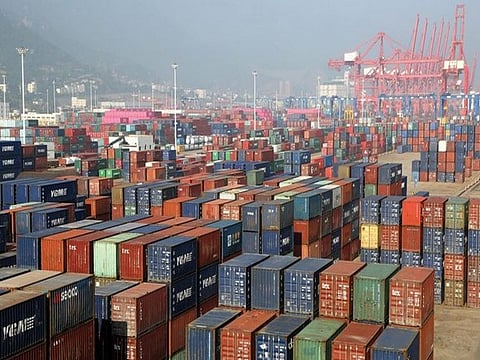US punitive tariffs may land domestic steel mills in dumping glut, cut prices by Rs 3,000/t: S&P
MUMBAI: With US president Donald Trump announcing reciprocal tariffs to the tune of 25%, or in his own words ‘we will charge you as you charge us’, on many other countries including India from April 12, S&P Global Ratings said domestic steel mills may face a glut of imported steel as American tariffs reshape global trade flows in the material leading a price domestic correction to the tune of Rs 3,000/tonne.
Some offset may come from cheaper coking coal, another likely result of shifting trade barriers, the agency said Wednesday, adding the downside risks on steel prices are greater than the likely cost benefits on inputs.
Indian steel mills ship only around 2% for their annual production to the US.
"India's steelmakers are caught up in rising geopolitical and trade tension, and that's creating more uncertainty in their outlooks," said agency’s credit analyst Anshuman Bharati. "Under our new downside scenarios, leverage would be 45% higher than our base case."
With the US set to impose a 25% tariff on steel imports from all countries including India from March 12, exports to the US are becoming costly, diverting flows to other geographies.
"Korea and Japan may divert more exports towards India," Bharati said, noting that these two countries accounted for 15% of the 26 million tonne steel the US imported in 2024.
India already gets 40% of its steel imports from these two countries and has free-trade agreements with both. At the same time, domestic steel prices are also under pressure from cheaper imports from China, which is the world’s largest producer and consumer of the metal with over 923 million in domestic demand and over 1.17 billion tonne in annual output in 2023.
"The higher-import threat comes while India is ramping up about 15 million tonne of newly built steel capacity that was added during 2024," said Bharati. "Sluggish steel prices could delay the full utilization of this capacity and may hinder expansion."
“Our downside scenario for a price correction is now harsher, at Rs 3,000/tonne. Under this scenario, the consolidated ratio of large Indian steel companies may rise to 3.5x in fiscal 2026. That is significantly higher than our base case of 2.4x,” he said.
The domestic players have requested government intervention to protect the domestic steel industry. "The government previously employed trade protection measures to check dumping," said Bharati. "Should similar measures be implemented again, they could insulate domestic producers from international price volatility and safeguard their earnings."
China's recent tariff hike of 18% on US coking coal could offer some relief to Indian steel producers. The 18% tariff will likely create a surplus of US-origin coking coal in the seaborne market, which could lower prices and improve the profitability of Indian steelmakers, which are the largest buyers of seaborne coking coal, he said.
China imported 10.7 million tons of US-origin coking coal in 2024, representing about 9% of its total coking coal imports. A substantial portion of this volume could now find its way to India, potentially putting downward pressure on prices for Australian-origin cargoes.
A $20/tonne reduction in coking coal prices from our base case of $240 (now trending at $200) could increase the average operating margin/tonne for Indian steel mills by over Rs 1,000, all else equal. Such an improvement could partially offset the hit from falling steel prices caused by a potential increase in imports.

